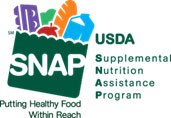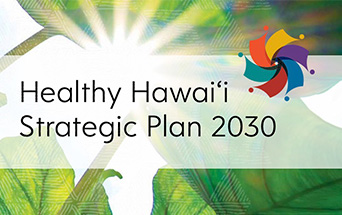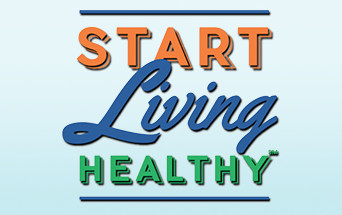SNAP-Ed
 The Supplemental Nutrition Assistance Program – Education (SNAP-Ed) is a program funded by the United States Department of Agriculture (USDA)’s Food and Nutrition Service (FNS) to promote healthy eating and healthy lifestyles among low-income populations. SNAP was formerly called the Food Stamp Program.
The Supplemental Nutrition Assistance Program – Education (SNAP-Ed) is a program funded by the United States Department of Agriculture (USDA)’s Food and Nutrition Service (FNS) to promote healthy eating and healthy lifestyles among low-income populations. SNAP was formerly called the Food Stamp Program.
The SNAP-Ed program supports healthy eating and physical activity in a wide range of settings and communities where people eat, live, work, learn, shop, and play. The program uses a mix of methods and comprehensive, multi-level public health approaches.
The SNAP-Ed goal is: “To improve the likelihood that persons eligible for the Supplemental Nutrition Assistance Program (SNAP), or other people with low income, will make healthy food choices within a limited budget and choose physically active lifestyles consistent with the current Dietary Guidelines for Americans and the USDA food guidance.
In Hawaiʻi, the SNAP-Ed program is led by two implementing agencies: direct nutrition education by our partners at the University of Hawai‛i Cooperative Extension Services, and the support of policy, systems, and environmental (PSE) changes by the Hawai‘i State Department of Health (DOH). The SNAP-Ed program adopts comprehensive multi-level and public health approaches for its projects and initiatives, encompassing evidence-based direct education, interventions, changes in PSE, social marketing campaigns, and multi-sector collaborations and partnerships. SNAP-Ed activities must impact all sectors of society−including SNAP-Ed eligible individuals and families, communities, and organizations; small and large businesses; and policymakers.
DOH SNAP-Ed Program Overview
Recognizing that the effective solutions to food insecurity and health challenges need to emerge from the communities most affected. The DOH SNAP-Ed program is dedicated to fostering community leadership development across four key systems:
- Early Care and Education (ECE): The SNAP-Ed program works with childcare facilities and administrators to promote the Wellness Guidelines for Nutrition and Physical Activity in Hawaii’s Early Childhood Care and Education Settings (ECE Wellness Guidelines) and offers training and technical assistance in curricula such as Farm to Keiki. Learn more about ECE by visiting the website.
- Schools (K-12): In close partnership with the DOH’s School Health program, SNAP-Ed supports the implementation of the Hawai‘i Department of Education’s School Wellness Policy. SNAP-Ed also supports farm to school initiatives by developing partnerships such as with the the Hawai‛i Farm to School Hui.
- Built environment: To ensure equitable access to healthy food and physical activity for everyone, regardless of housing or transportation access, SNAP-Ed partners with the DOH’s Built Environment Program. The focus includes supporting the development of complete streets, promoting active transportation, enhancing housing options, and fostering urban agriculture including community gardens.
- Community Food Access:
-
- SNAP retail: Many low-income residents face limited availability of healthy food options where they shop. To address this, SNAP-Ed support EBTs (Electronic Benefits Transfer) programs at farmers markets and nutrition incentive programs including DA BUX (that allows SNAP users to double their SNAP dollars when they purchase Hawai‘i grown fruits and vegetables),and Produce Prescription Programs.
- Emergency food relief: SNAP-Ed supports building leadership within the state’s food banks and food pantries, ensuring clients have access to healthy food and additional programs that promote self-sufficiency.
- Food Access Capacity Building Project: Low income families encounter various challenges in accessing healthy foods, including cost, availability, preparation time, and cooking skills. As a result of COVID-19, Hawai‘i experienced a dramatic economic transition that affected Hawai‘i’s low-income and food insecure populations resulting in a 55% increase in households receiving SNAP. A recent report found, nearly 1 in 3 households in Hawai‘i experienced food insecurity in 2023, and 37% of all households felt anxious about running out of food, regardless of food security status. By leveraging community centers, churches, healthcare facilities , and farms, we can develop systems that make healthy food more affordable, help residents know where their food comes from, instill basic food skills, and improve access, ultimately enhancing the eating behaviors of entire communities.
- The DOH SNAP-Ed program has provided funding to establish Food Access Coordinator (FAC) positions in each county as part of the Food Access Capacity Building Project and to support the Hawaii Food Access Coalitions. As of 2024, there are five FACs − one in each county and an additional coordinator in Waianae, Oahu.
-
-
- The FACs have three main responsibilities:
o Developing the network of food system stakeholders.
o Building a shared understanding of each county’s food systems.
o Improving access to locally produced foods for residents facing food insecurity. - The FACs provide:
o Support and technical assistant (TA)
o Capacity building
o Resource development
o Training for PSE work
o Direct education opportunities in Hawaii‘s low-income communities
- The FACs have three main responsibilities:
-
Online Mapping Tool
DOH SNAP-Ed’s PolicyMap is an online mapping tool with a variety of data sources around healthy food access (e.g. farmers market accepting EBT, DA BUX retailors) and built environment projects (e.g. bike lane/pedestrian/multi-modal transportation). This map can be used to create an in-depth, visually-rich local snapshot. Please visit PolicyMap’s tutorial page for a complete walk through of all features and functions on PolicyMap.
Data mapped by PolicyMap, an online GIS mapping tool.
Data mapped by PolicyMap, an online GIS mapping tool.
Reports
- Outcome Harvesting Evaluation Study
- Good Food For All: Advancing Healthy Equity Through Hawai‘i’s Food System (2018)
In accordance with federal civil rights law and U.S. Department of Agriculture (USDA) civil rights regulations and policies, this institution is prohibited from discriminating on the basis of race, color, national origin, sex (including gender identity and sexual orientation), religious creed, disability, age, political beliefs, or reprisal or retaliation for prior civil rights activity.
Program information may be made available in languages other than English. Persons with disabilities who require alternative means of communication to obtain program information (e.g., Braille, large print, audiotape, American Sign Language), should contact the agency (state or local) where they applied for benefits. Individuals who are deaf, hard of hearing or have speech disabilities may contact USDA through the Federal Relay Service at (800) 877-8339.
To file a program discrimination complaint, a Complainant should complete a Form AD-3027, USDA Program Discrimination Complaint Form which can be obtained online at: https://www.usda.gov/sites/default/files/documents/ad-3027.pdf, from any USDA office, by calling (833) 620-1071, or by writing a letter addressed to USDA. The letter must contain the Complainant’s name, address, telephone number, and a written description of the alleged discriminatory action in sufficient detail to inform the Assistant Secretary for Civil Rights (ASCR) about the nature and date of an alleged civil rights violation. The completed AD-3027 form or letter must be submitted to:
- Mail:
Food and Nutrition Service, USDA
1320 Braddock Place, Room 334
Alexandria, VA 22314; or - Fax:
(833) 256-1665 or (202) 690-7442; or - Email:
[email protected]
This institution is an equal opportunity provider.




